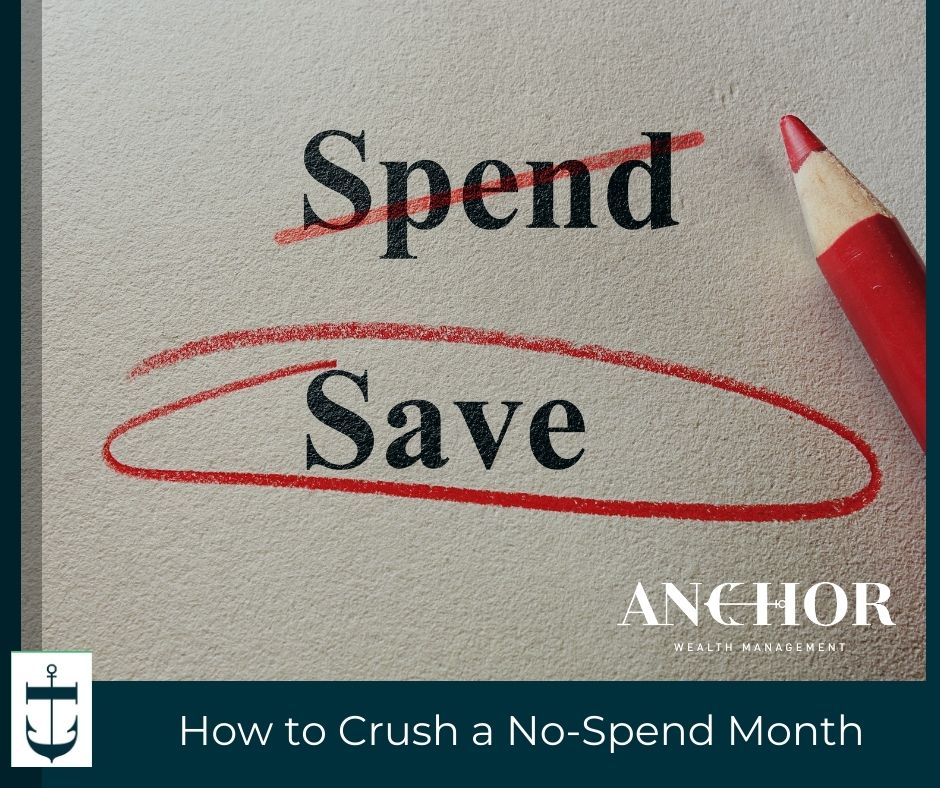
For many people, January ’tis the season for paying off holiday bills. In a world that constantly bombards us with advertisements and temptations to spend, the idea of a “No Spend Month” may seem challenging or even daunting. However, this financial challenge is not about depriving yourself of necessities; it’s about making conscious choices to abstain from non-essential spending and build good spending habits to carry you through the rest of the year.
Why a No Spend Month?
A “No Spend Month” is not just about saving money; it’s a valuable exercise in understanding the difference between needs and wants. By intentionally choosing not to spend on non-essential items, you can redirect your focus towards your financial goals, whether it’s building an emergency fund, paying off debts, or investing in the future.
Accountability Matters
To successfully navigate a “No Spend Month,” accountability plays a crucial role. Share your commitment with a friend, family member, or even your financial advisor. Creating a visual representation, such as a calendar, can help you track your progress and stay motivated. Knowing that someone is aware of your goal can provide the necessary support and encouragement to resist impulsive spending.
Avoid High Spending Areas and use a Budget Calculator
One effective strategy is to stay away from environments that trigger excessive spending. Ignore online ads, log yourself out of your Amazon account, unsubscribe from tempting newsletters, and steer clear of shopping malls. Employ an online budget calculator to assist you in sticking to the financial goals you set at the beginning of your No Spend Month. To help you stick to your budget goals, Anchor Wealth Management recommends using EveryDollar’s online tool: EveryDollar.
Focus on What’s Important
During a No Spend Month, it’s essential to shift your focus from what you want to what you already have. Be grateful for the possessions, experiences, and opportunities that surround you. Explore free local entertainment, rediscover hobbies and games already at home, and appreciate the abundance already present in your life. Recognizing that buying the next material possession doesn’t bring lasting happiness is a key step towards financial contentment.
Can It Wait?
After your successful “No Spend Month,” continue to monitor your spending. Practice self-honesty and question your motivations before making a purchase. Ask yourself, “Can it wait?” If the answer is yes, it’s likely a want rather than a need. This simple question can help you differentiate between impulsive desires and genuine necessities, preventing unnecessary spending.
Closely watching your finances is not just a financial challenge; it’s a journey towards financial empowerment and mindfulness. It’s okay to start small and take a week or two to challenge yourself during your first “No Spend Month.” By taking control of your finances and spending habits now, you are laying the foundation for a more financially secure and fulfilling future.
